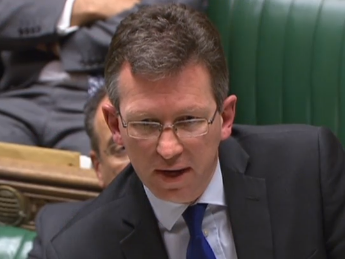
Culture Secretary Jeremy Wright has been accused of “sleeping on the job” and ignoring an “inevitable crisis in local news” after Johnston Press was put into administration.
But shadow culture secretary Tom Watson told MPs today that the saga represented a much wider crisis in local news which was being ignored by Government.
Watson poured scorn over “tech oligopolies” such as Facebook, and said newspaper proprietors like Rupert Murdoch had more respect for democracy than the likes of social media boss Mark Zuckerberg.
He told MPs as he raised the Johnston Press issue in the Commons: “Since 2005, 200 local newspapers have closed and we’ve lost half of all local journalists – for 10 years we have seen the impact of digital disruption on local journalism.
“While ministers prevaricate and hold open sessions, tech oligopolies have consolidated their media advantage by dominating digital ad revenues, they continue to avoid fair taxes and will pay less once the Government’s corporation tax cuts are introduced in the Finance Bill.
“Some have even allowed criminal data breaches on their platforms, worse they sneer at parliaments around the world trying to hold them to account.
“Can I remind the House again that even Rupert Murdoch showed greater respect for our democratic institutions than Mark Zuckerberg, who refused to appear before the DCMS select committee.”
Watson went on: “There is a crisis in local newspapers that we’ve known about for many years.
“The Secretary of State has only been in post for 134 days, in that time he has overseen the resignation of a respected minister, he has made an obviously and humiliating climb-down on FOBTs whilst ignoring what everyone knew would be an inevitable crisis in local news.
“After 134 days in post he needs to wake up and stop sleeping on the job.”
Watson also asked for clarification over reports that Johnston Press company pensions were at risk of cuts.
Wright (pictured) responded by accusing the Labour deputy leader of playing “political point scoring” with a serious issue.
“The problems affecting local media have been apparent for some time and they are structural problems, that is precisely why we believe the right approach to take is to ask for an independent assessment of those structural problems which Dame Frances Cairncross is carrying out and will be completed shortly,” he said.
“When it is, we’ve asked Dame Frances to give clear indications of what she believes the answers may be so that we can consider what action a government can properly take.
“That is the right approach to what is a structural and long term problem as he says.”
On the status of the company pensions, he added: “He asked me about current pensioners, as far as I understand it those will not be affected. Anyone in receipt of their pension now will continue to be paid, the changes will affect those who are currently in employment and we believe 250 or so in total.”
Picture: Parliament TV
Email pged@pressgazette.co.uk to point out mistakes, provide story tips or send in a letter for publication on our "Letters Page" blog
